1/27/2019 - Lessons in Hungarian History: July 1944. Lessons in Hungarian History: July 1944. On January 27, the Kossuth Foundation
sponsored and hosted a lecture on a scholarly volume, July 1944: The Deportation of the Jews
in Budapest Foiled. (Ed. Geza Jeszenszky and published by Helena History Press). The book,
supported in part by a grant from AHF made possible by the Hungarian Initiatives Foundation,
relates to the military intervention of Colonel Ferenc Koszorus and the First Armored Division
under his command in July 1944 that blocked the deportation to the Nazi German death camps of
a quarter of a million Jews living in Budapest. The late Congressman Tom Lantos, a victim of
the Holocaust himself, had paid tribute to Colonel Koszorus (reprinted in the book), stating on
the floor of Congress in 1994: that "it is with great honor and pride that I rise today in
recognition of the valiant, patriotic efforts of Ferenc Koszorús. Many thousands of families are
alive today as a result of the heroic actions of one man who stood up for his beliefs in a very
uncertain and dangerous time. His loyalty to his country and love of humanity are an inspiration
to all who struggle against oppression and the vile bigotry of racism. Too often the efforts of
those who struggled against the Nazi oppression go unrecognized... I am proud to honor
Colonel Koszorús, a patriot, a humanitarian, and a hero."
The Kossuth House lecture was delivered by Frank Koszorus, Jr., Esq., former national president
of AHF and the son of Colonel Koszorus. He also contributed an essay to the volume. Theodore
Boone, Esq. was the moderator of the program held in the Kossuth House in Washington D.C.
His Excellency the Hungarian Ambassador Dr. Laszlo Szabo, M.D., his wife, Dr. Ivonn
Szeverenyi, M.D., the Honorable Aniko Gaal Schott, and officers of the Foundation were among
the participants of the well-attended event. July 1944 can be purchased on Amazon." For an
abstract read here. For a review of the book click here.
Available on Amazon.
Help AHF help the community by doing all
your online shipping via Amazon Smile!
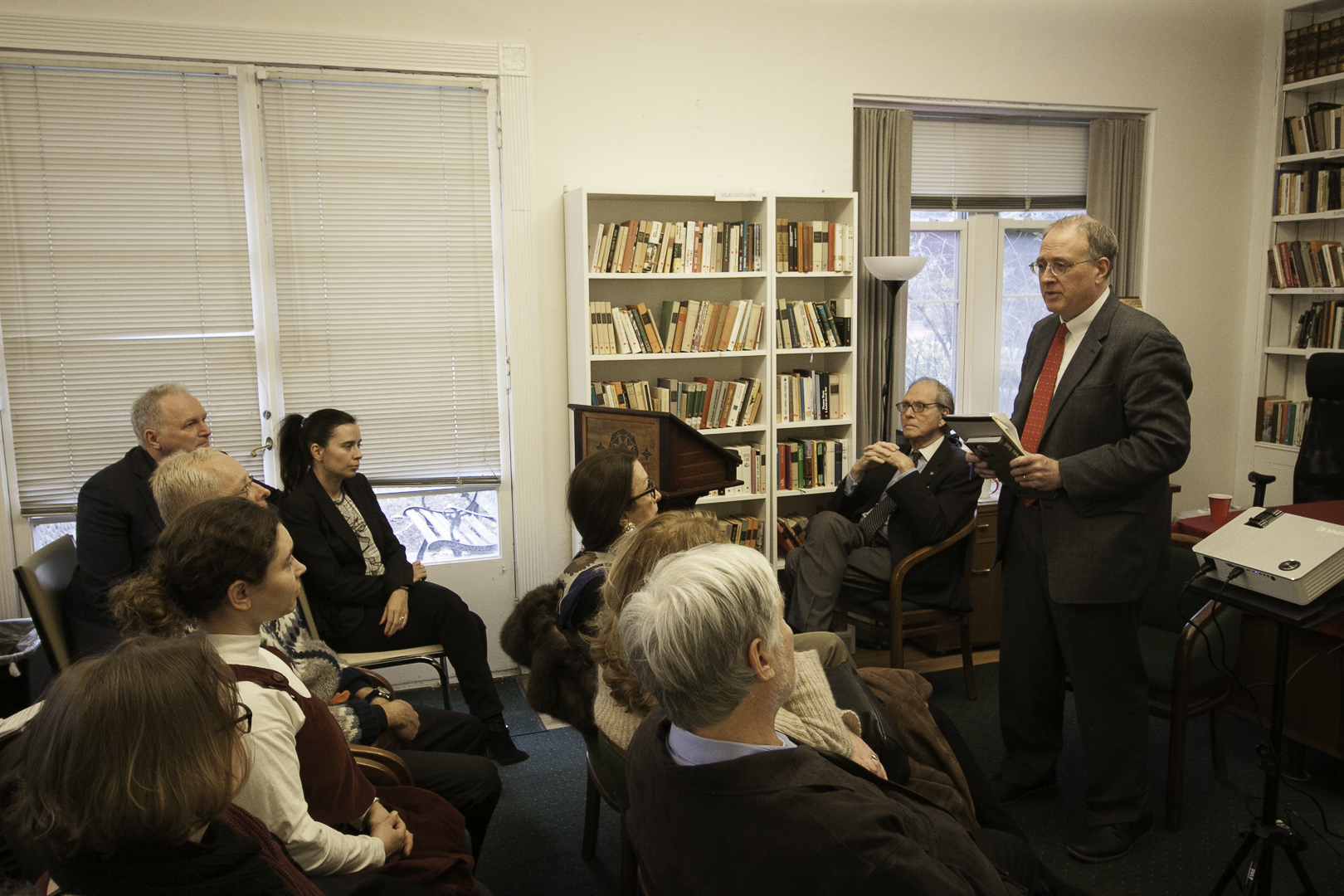
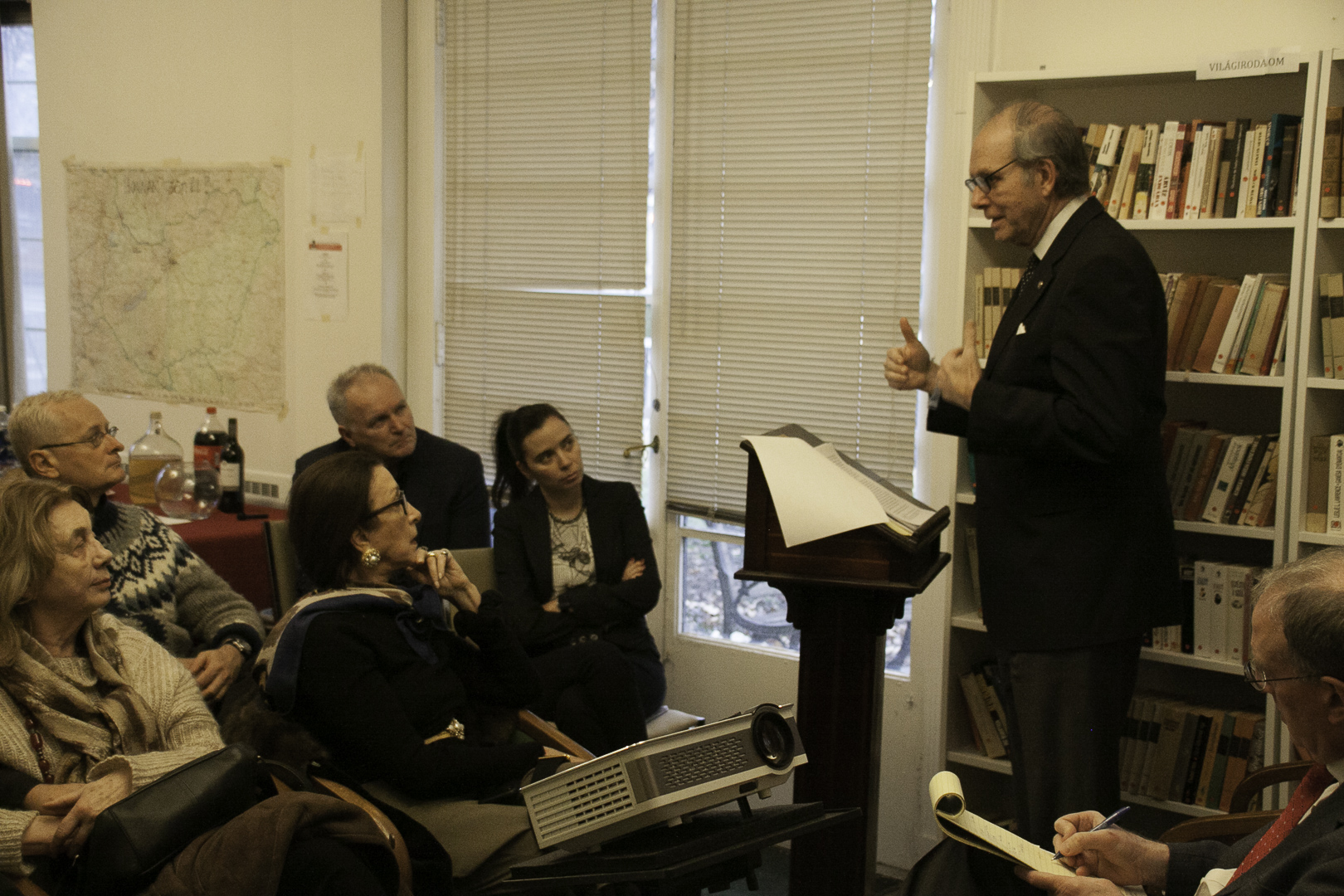
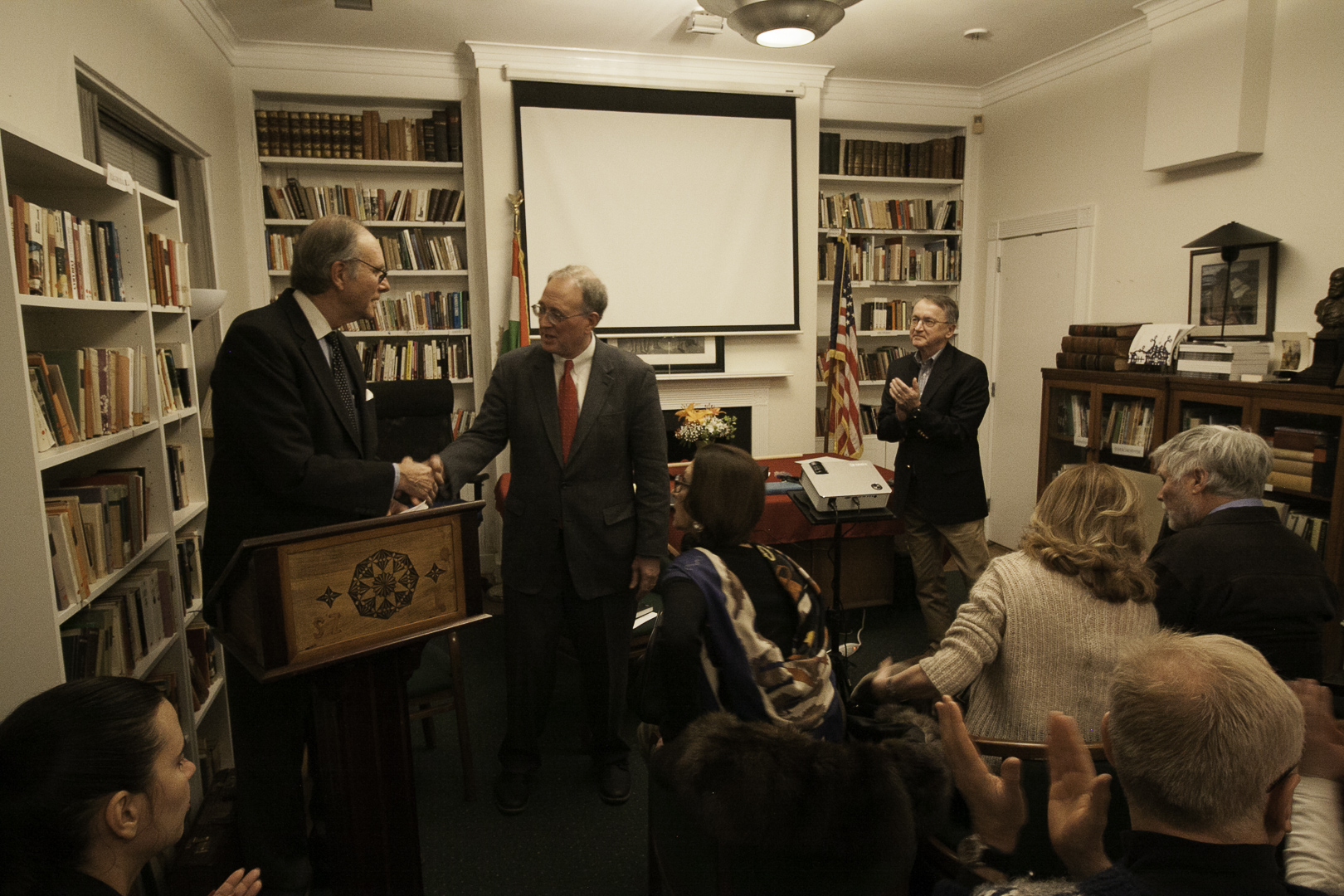
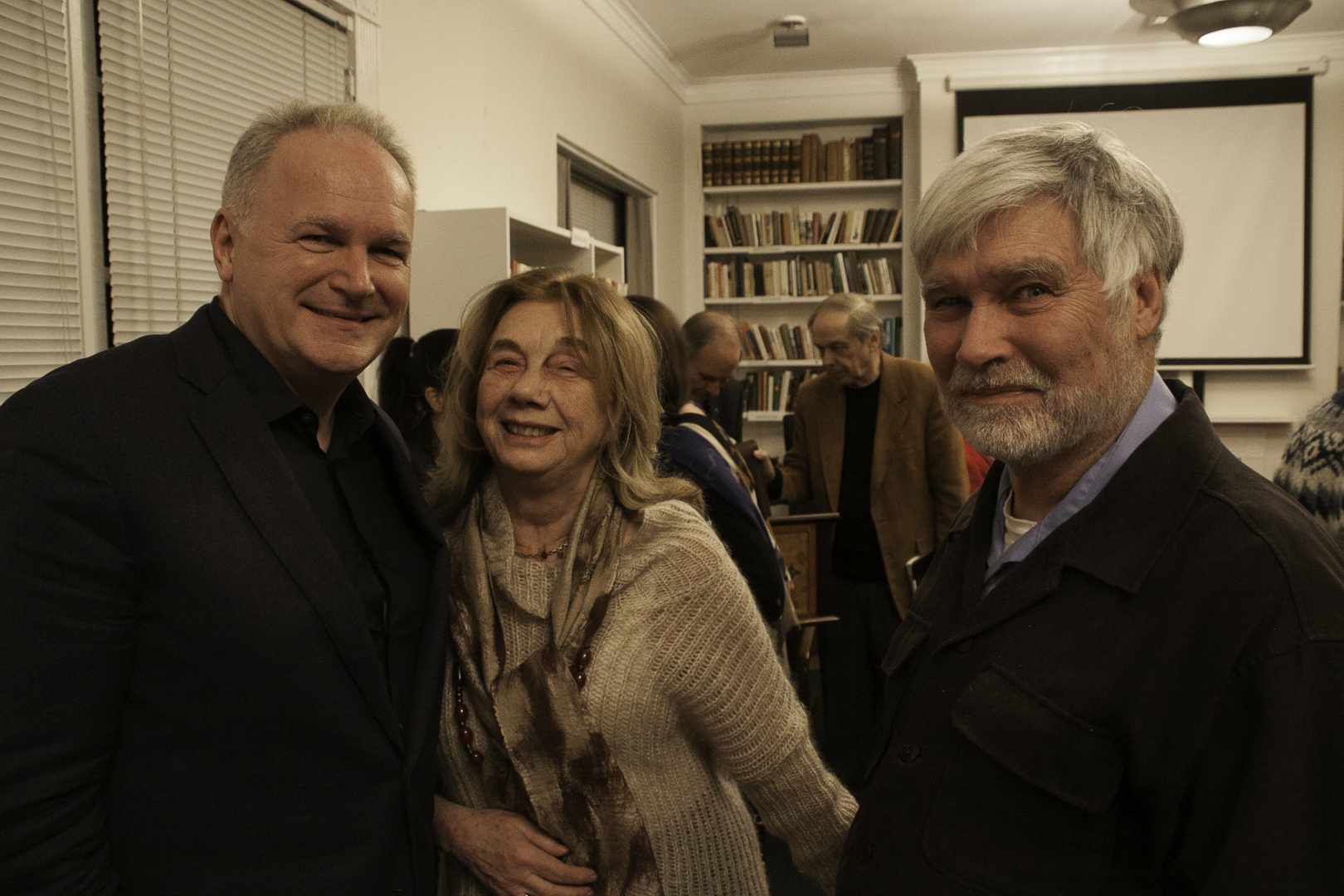
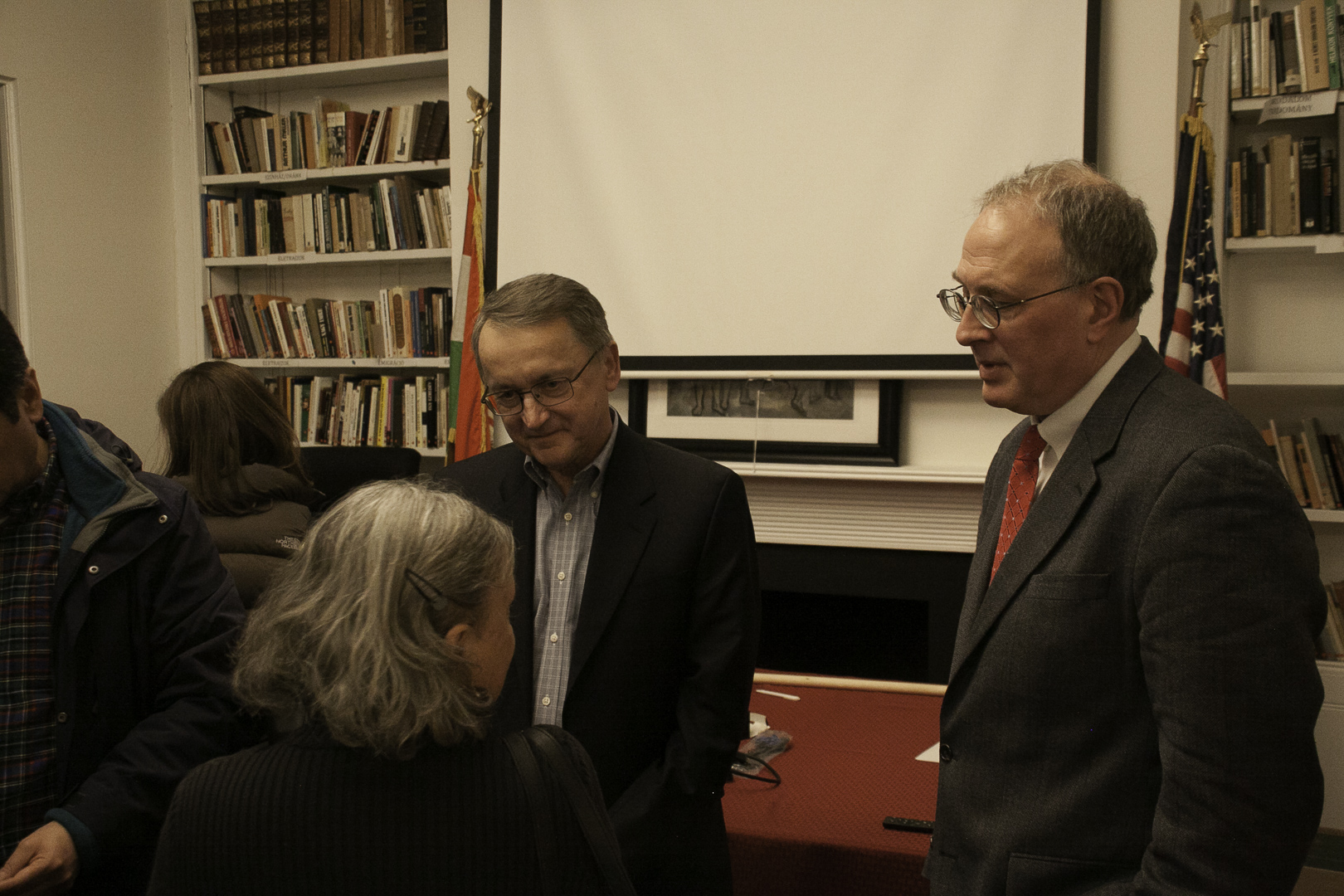
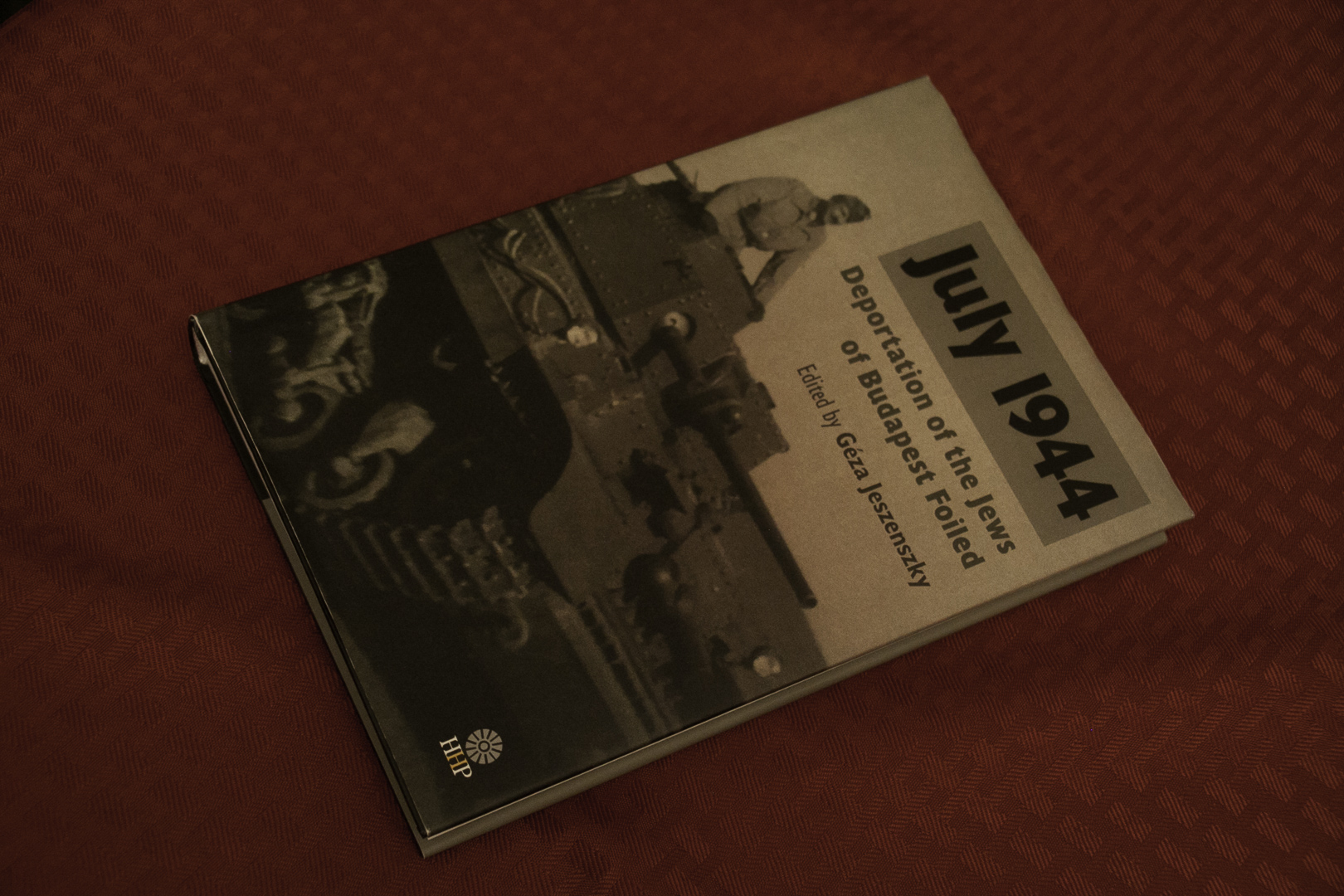
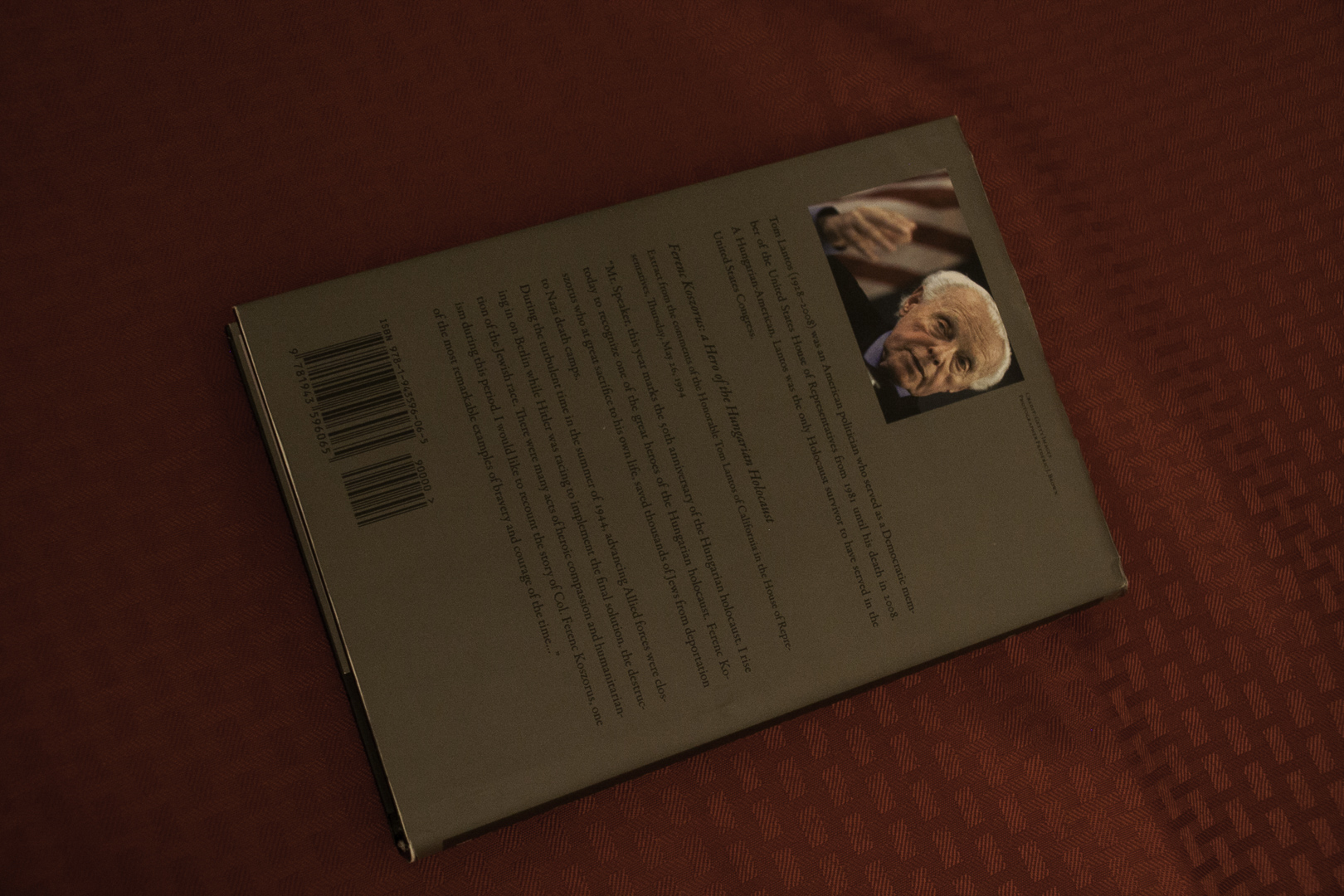
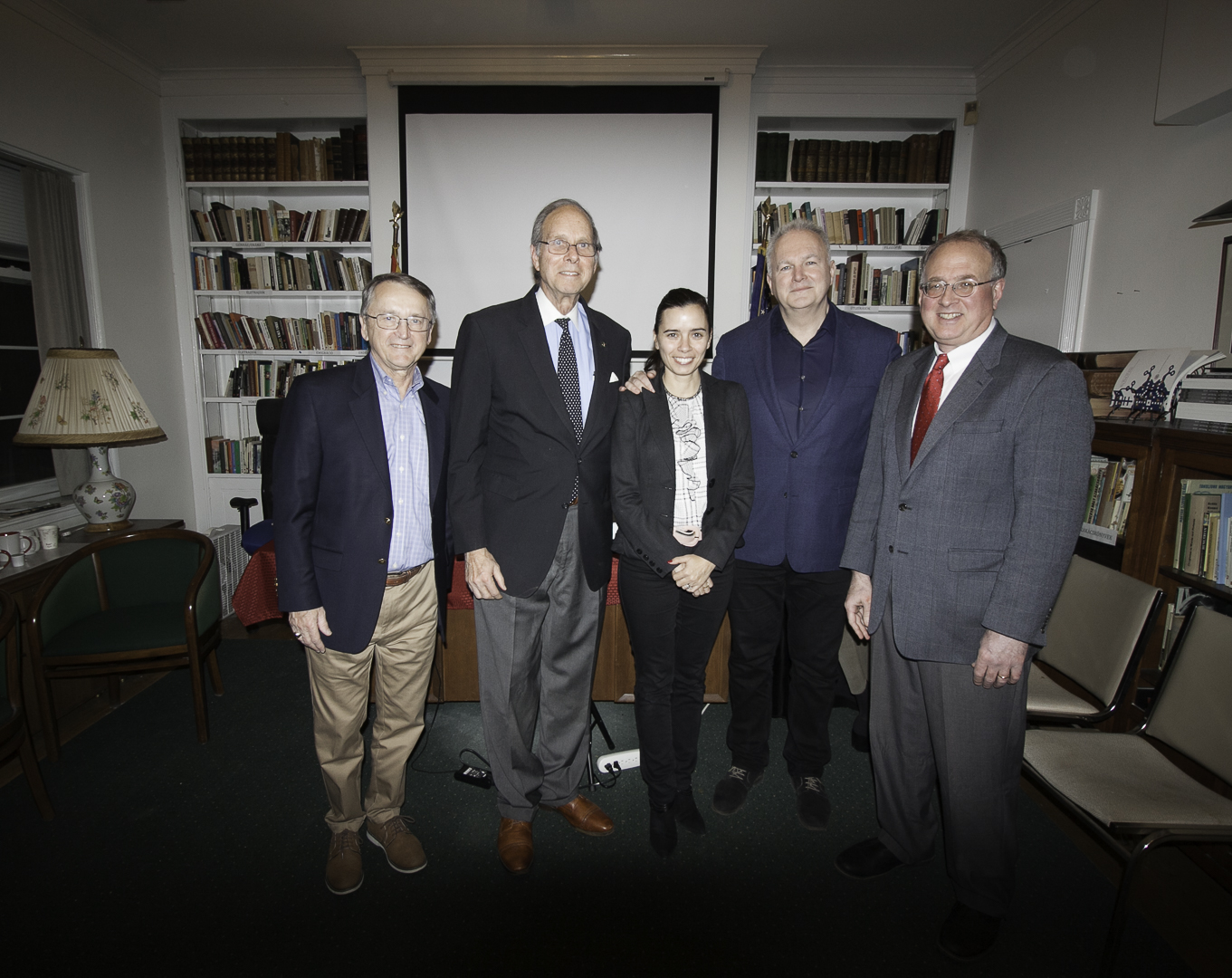
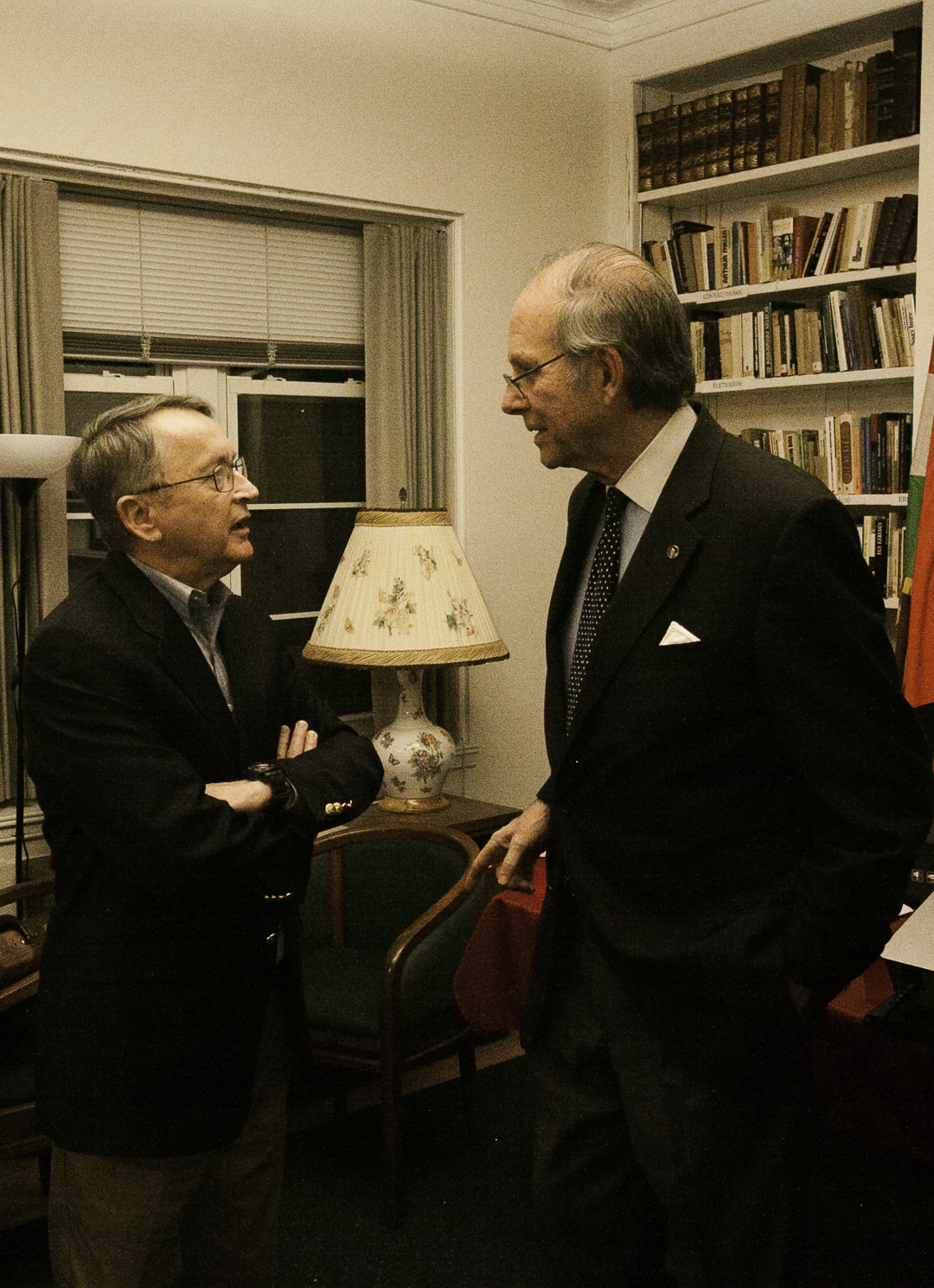
[<< Back to All AHF News]
| Shortcuts:
Related Articles

3/26/2018 - Így kell jó hírét kelteni Magyarországnak: "...fontosabbnak tartotta Washingtonban az Amerikai Magyar Szövetség, hogy a szabadságszerető magyar nép igazi arculatát mutassa be. Ismertesse meg minél jobban hazánk történelmét, a magyar emberek küzdelmét, hogy ezzel is közelebb hozza a két nép barátságát." [tovább]
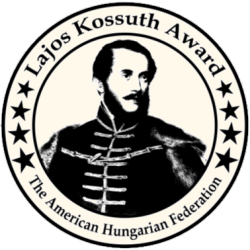 |
| AHF established the Lajos Kossuth Award to recognize government leaders for their support in strengthening U.S. relations with Hungary and of democracy and human and minority rights in Central and Eastern Europe. |

[View the program]
 March 15 is Hungarian National Day commemorating the 1848 War of Independence and fight for Liberation and Democracy. Kossuth
Lajos (Louis) (b. 1802, d. 1894, pronounced co-shoot luh-yôsh) was Governor of Hungary and leader during fight for independence which
was eventually defeated by the union of the royalist Austrian Habsburg
and Russian Czarist Armies (1848 - 1849). Kossuth envisioned a federation
in the Kingdom of Hungary in which all nationalties participated in a
vibrant democratic system based on fundamental democratic principles such
as equality and parliamentary representation. The bloody conflict eventually
led to a great compromise known as the "Austro-Hungarian Empire,"
in which Hungary gained some autonomy, although Kossuth would have no
part in it and demanded full indepependence until his death. It also inadvertantly set the seeds for Hungary's dismemberment after WWI at Trianon March 15 is Hungarian National Day commemorating the 1848 War of Independence and fight for Liberation and Democracy. Kossuth
Lajos (Louis) (b. 1802, d. 1894, pronounced co-shoot luh-yôsh) was Governor of Hungary and leader during fight for independence which
was eventually defeated by the union of the royalist Austrian Habsburg
and Russian Czarist Armies (1848 - 1849). Kossuth envisioned a federation
in the Kingdom of Hungary in which all nationalties participated in a
vibrant democratic system based on fundamental democratic principles such
as equality and parliamentary representation. The bloody conflict eventually
led to a great compromise known as the "Austro-Hungarian Empire,"
in which Hungary gained some autonomy, although Kossuth would have no
part in it and demanded full indepependence until his death. It also inadvertantly set the seeds for Hungary's dismemberment after WWI at Trianon
[ < back to AHF 1848 Commemorations]
Shortcuts:
Downloads:
Famous Quotes
 "the house of Habsburg-Lorraine, perjured in the sight of
God and man, had forfeited the Hungarian throne." "the house of Habsburg-Lorraine, perjured in the sight of
God and man, had forfeited the Hungarian throne."
Hungary, April 1849
"All for the people and all by the people. Nothing about
the people without the people. That is Democracy, and that is the ruling
tendency of the spirit of our age."
Spoken before the Ohio State Legislature,
February 16, 1852
Audio
Resources
 Hear
Louis Kossuth Speak! [Click Here] - This is the speech of Louis Kossuth which he gave for the dedication of the statue for the 13 Hungarian generals, who were executed at Arad, Hungary, on October 6, 1849 (Arad is in Rumania today after annexation due to the Treaty of Trianon in 1920 ).
Louis Kossuth was exiled after the fall of the Hungarian Liberation Fight of 1848 and made his permanent home in Torino (Turin), Italy. He could not attend the dedication of the monument at Arad, without risking arrest, so he recorded his speech inTurin, and sent it to Arad using the new technology of sound recording, called the phonograph. Hear
Louis Kossuth Speak! [Click Here] - This is the speech of Louis Kossuth which he gave for the dedication of the statue for the 13 Hungarian generals, who were executed at Arad, Hungary, on October 6, 1849 (Arad is in Rumania today after annexation due to the Treaty of Trianon in 1920 ).
Louis Kossuth was exiled after the fall of the Hungarian Liberation Fight of 1848 and made his permanent home in Torino (Turin), Italy. He could not attend the dedication of the monument at Arad, without risking arrest, so he recorded his speech inTurin, and sent it to Arad using the new technology of sound recording, called the phonograph.
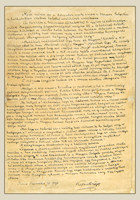 The recording was made on September 20, 1890, when Kossuth was 88 years old. It is a sad fact that the monument Kossuth sent his speech for was torn down by the Rumanian government when they annexed Transylvania, along with Arad, in 1920, after World War I. The recording was made on September 20, 1890, when Kossuth was 88 years old. It is a sad fact that the monument Kossuth sent his speech for was torn down by the Rumanian government when they annexed Transylvania, along with Arad, in 1920, after World War I.
The original
recording on two wax cylinders for the Edison phonograph survives to this
day, although barely audible due to excess playback and unsuccessful early
restoration attempts. Lajos Kossuth is the earliest born person
in the world who has his voice preserved. Since the audio
is of such poor quality, here is it is transcribed in Hungarian and translated
to English (special thanks to Louis
Kossuth in North America)
Hungarian |
English |
"A világ bírája
a történelem fog e kérdésre felelni. Legyenek
a szentemlékû vértanúk megáldottak
poraikban, szellemeikben a hon szabadság Istenének
legjobb áldásaival az örökkévalóságon
keresztül; engem ki nem borulhatok le a Magyar Golgota porába,
engem október 6-a térdeimre borulva fog hontalanságom
remete lakában látni a mint az engem kitagadott Haza
felé nyújtva agg karjaimat a hála hû
érzelmeivel áldom a vértanúk szent emlékét
hûségükért a Haza iránt, 's a magasztos
példáért, melyet az utódoknak adtanak;
's buzgó imával kérem a magyarok Istenét,
hogy tegye diadalmassá a velõkig ható szózatot,
mely Hungária ajkairól a Magyar Nemzethez zeng. Úgy
legyen Ámen!
Turin
September 20 1890
Kossuth Lajos |
"The judge of the universe,
history, will decide over this question. Should the saintly remembered
martyrs be hallowed in their ashes, in their spirit with the highest
blessings of the Lord of Liberty and through eternity; I can not
pay my sympathies to the ashes of the Hungarian Golgotha, but October
6 will find me on my knees in this reclusive home of exile, as I
open my arms to my disowning homeland. With gratitude's faithful
sentiments, I bless the martyrs' sacred memory for their faith in
their homeland and for the sublime example they left to their heirs:
with ardent prayer I beg the God of Hungarians to make their appeal
which echoes from the lips of Hungaria to the Hungarian Nation.
So be it, Amen!
Turin
September 20 1890
Lajos Kossuth |
|
Click to hear the recording: |
"Kossuth Lajos azt üzente,
elfogyott a regimentje.
Ha még egyszer azt üzeni,
mindnyájunknak el kell menni,
Éljen a magyar szabadság,
Éljen a haza ! |
Esik esõ karikára,
Kossuth Lajos kalapjára.
Valahány csepp esik rája,
Annyi áldás szálljon rája,
Éljen a magyar szabadság,
Éljen a haza!" |
Links
- AHF and the Kossuth Bust in the US Capitol
- AHF commemorating 1848
- President Bush Honors 1848 and Hungary's Contributions to Democracy
- HRFA's excellent Kossuth in America [visit]
- Select Speeches of Kossuth, Condensed and Abridged, with Kossuth's
Express Sanction [visit]
- Louis Kossuth, Mason And Apostle Of World Democracy [visit]
- Count Apponyi's Oration on the Death of Louis Kossuth [visit]
- Wikipedia - [visit]
and add your thoughts!
- Louis Kossuth in North America [visit]
- Kossuth County, Iowa [visit]
- Kossuth County, Iowa statue dedication
[visit]
- Dedication of statue to replace one destroyed by
Rumanian occupation
forces in 1921:
Gyergyócsomafalva, Transylvania [visit]
|



